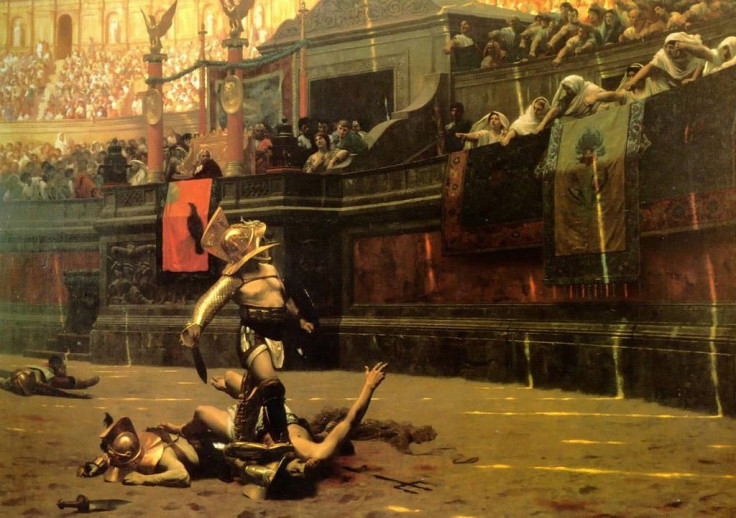Roman Gladiators, Found In Ephesus Cemetery, Ate A Vegetarian Diet And Drank Ashes As Calcium Supplement

Looking back through history, the list of those who chose a vegetarian diet offers the occasional rude surprise: Mahatma Gandhi, Henry Ford, Michael Clark Duncan, Mark Twain, and Adolf Hitler. Now, a new forensic medicine study finds the ancient Roman gladiators might be added to this unusual register. After conducting anthropological investigations in the ancient city of Ephesus, researchers believe the Roman gladiators ate a mostly vegetarian diet and drank ashes as a healing tonic following training sessions.
In 1993, a cemetery was discovered in Ephesus, Turkey, a former capital of the Ancient Roman province of Asia. Two clues support the assumption that the cemetery contains the remains of ancient gladiators. Artefacts, including graffiti, suggest gladiator fights took place in Ephesus since 69 BC, when the city had over 200,000 inhabitants. And most of the bodies discovered in the cemetery exhibited trauma patterns in keeping with armed combatants who publicly battled to entertain an ancient audience.
Most gladiators were slaves, prisoners of war, or condemned legal offenders. While some contestants had swords (gladium) and fought in the arena without prior special training — certain death in nearly all cases — others, including common citizens, senators, and noblemen, volunteered after first completing appropriate training at special gladiator schools. Because of this, anthropologists believe gladiators consisted of men from almost every social class of Roman society. Previous studies conducted on the remains from the Ephesus cemetery indicate the gladiators followed a strict set of rules, never letting a fight descend into mere mutilation. Even more, examinations of trauma patterns suggest when a gladiator was close to death, he would be put out of his misery by a swift hammer blow delivered to the head.
For the current study, researchers used spectroscopy and stable light isotope ratio analysis of bone collagen and bone mineral as tools in their investigation. After examining the bones, the researchers discovered the gladiators mostly ate a vegetarian diet. While their staple foods most likely included wheat and barley, the gladiators probably ate a grain of inferior quality in most cases. However, the researchers highlighted a significant difference between gladiators and the normal population. The amount of strontium measured in their bones suggests an ash drink quoted in ancient literature may have indeed been part of the gladiators’ diets.
"Plant ashes were evidently consumed to fortify the body after physical exertion and to promote better bone healing," said Dr. Fabian Kanz, a professor at the Department of Forensic Medicine at the Medical University of Vienna, and study leader. "Things were similar then to what we do today — we take magnesium and calcium (in the form of effervescent tablets, for example) following physical exertion."
Source: Lösch S, Moghaddam N, Grossschmidt K, Risser DU, Kanz F. Stable Isotope and trace element studies on gladiators and contemporary Romans from Ephesus (Turkey, 2nd and 3rd ct. AD) - Implications for differences in diet. PLOS One. 2014.



























